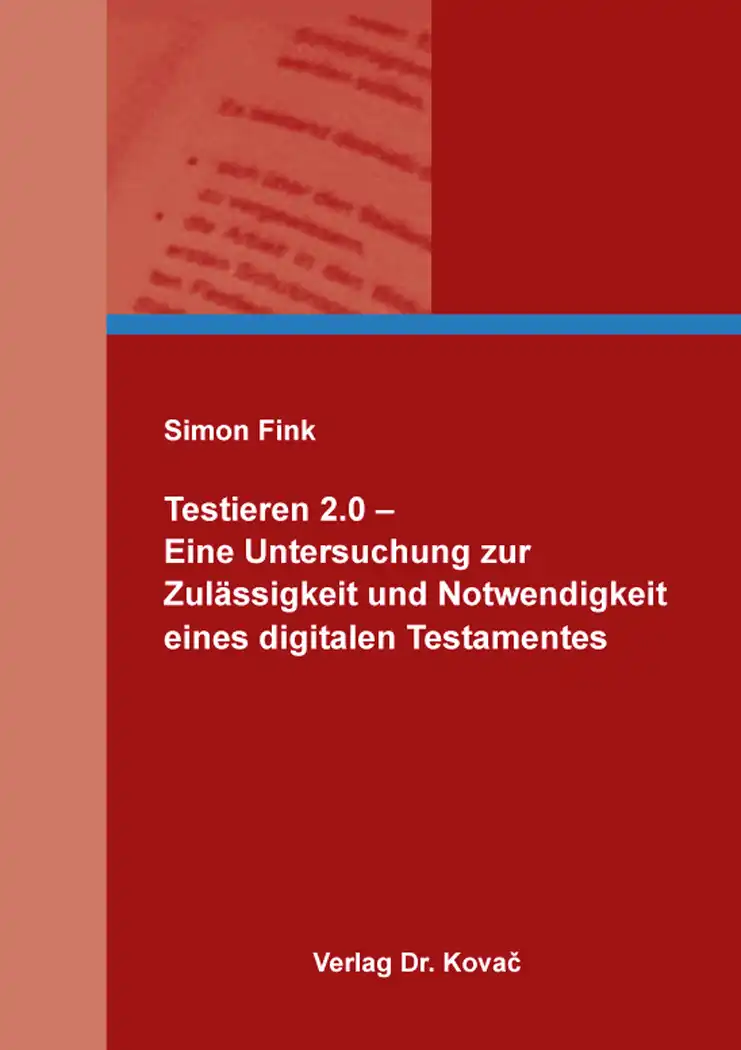Simon FinkTestieren 2.0 – Eine Untersuchung zur Zulässigkeit und Notwendigkeit eines digitalen Testamentes
Studien zum Erbrecht, volume 30
Hamburg 2024, 160 pages
ISBN 978-3-339-13868-2 (print) |ISBN 978-3-339-13869-9 (eBook)
About this book englishenglish
Digitalization does not stop at German inheritance law, which is over one hundred years old. For this reason, the author's work deals with the various practical possibilities of digital wills. To date, such digital forms of wills have been predominantly rejected in legal literature with reference to the supposedly increased risk of manipulation. The author refutes these concerns by interviewing experts from the field of information technology and a handwriting expert, among others, and discusses in detail the possibility of a private written will using a touchpen and a smartpen. Furthermore, it is examined whether a video call will could provide "more" testamentary freedom in actual emergencies and could therefore be recognized as an emergency will. In addition, the requirements for a digital register of wills for private wills are worked out and concrete standard proposals are made. The author then explains the advantages of digital documents in court proceedings and shows that electronic wills from the United States can already be recognized in Germany at the present time. Rather, it may also be of interest to those who are professionally involved with digital documents.
Keywords
DigitalisierungErbrechtManipulationsgefahrRechtswissenschaftSmartpenTestamentTestamentsregisterTouchpenVideoanrufZivilrechtIhr Werk im Verlag Dr. Kovač

Möchten Sie Ihre wissenschaftliche Arbeit publizieren? Erfahren Sie mehr über unsere günstigen Konditionen und unseren Service für Autorinnen und Autoren.
